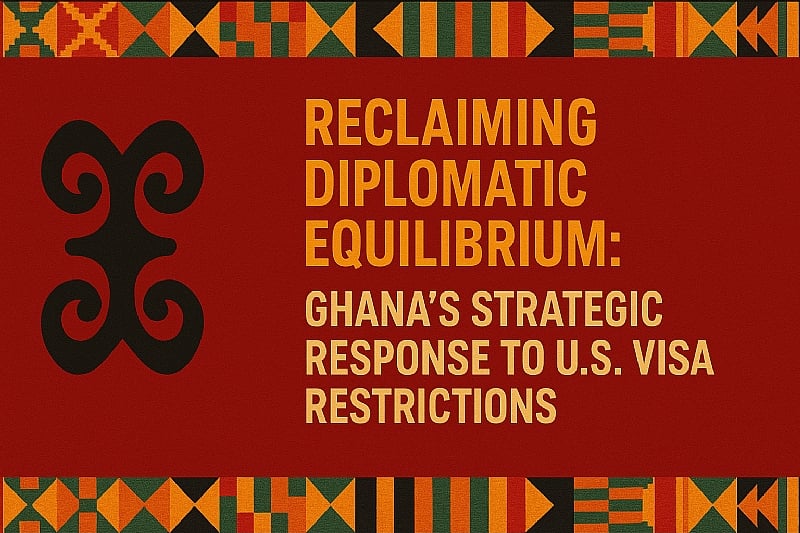🛂 In the evolving theatre of international diplomacy, visa policies have become quiet instruments of influence—shaping national relationships and projecting strategic postures. The recent reduction in B1/B2 visa validity for Ghanaian travelers to the United States, now capped at three months, contrasts sharply with Ghana’s longstanding generosity toward American applicants. Such imbalance must not be overlooked.
🌍 How Nations Asserted Reciprocity
Ghana is not alone. Nations such as Brazil, Nigeria, Chad, and Venezuela have taken assertive stances in response to unilateral visa decisions:
Brazil reintroduced visa requirements for U.S. citizens, citing unequal treatment. Nigeria launched formal protests and recalibrated visa privileges in response to imposed limits. Chad suspended U.S. visa issuance to assert diplomatic parity. These actions were not borne of hostility—but of sovereign dignity.
🔁 Strategic Retaliation Pathways
To affirm Ghana’s status as a global peer:
1. Implement Targeted Visa Reciprocity
Limit U.S. B1/B2 visas to single-entry, 3-month validity, matching the terms now imposed on Ghanaians.
2. Audit Diplomatic and Aid Access
Re-evaluate the privileges extended to U.S. diplomats, contractors, and aid entities, and recalibrate where inequities exist.
3. Regional Mobility Acceleration
Strengthen ECOWAS and AU travel corridors to offer alternatives beyond U.S. routes.
4. Launch Cultural Leverage Campaigns
Use public diplomacy to emphasize Ghana’s unmatched cultural richness and investment appeal, reinforcing the importance of mutual exchange.
5. Coordinate Continental Diplomacy
Engage peer African states to form a united policy stance on visa equity across the continent.
⚖️ Implication Steps for Policy Integrity
For Ghana’s response to stand on the pillars of ethical governance:
Undertake a legal audit of current visa agreements under the Immigration Act. Coordinate stakeholder consultations across Parliament, civil society, and the diaspora. Increase visa transparency through public reporting of statistics. Reframe the response as an assertion of parity, not political antagonism.
📣 Call to Action
Honourable Minister Sammy Okudzeto Ablakwa,
Your commitment to justice, transparency, and international equity has earned national trust. As Ghana’s diplomatic lead, it is imperative that you address these visa disparities with urgency and resolve. The current imbalance undermines our civic dignity, economic interests, and strategic alliances. Let Ghana’s response be visionary and principled—guided by mutual respect, not submission.
We urge you to initiate formal reciprocal visa adjustments, audit privileged access, and convene multilateral allies to define a new standard in African foreign engagement.
🗣️ The Weight of One Hand Cannot Lift a Burden
A Call for Diplomatic Reciprocity
“As a sovereign nation, Ghana must not be seen as bending beneath the pressures of foreign policy imbalances,” remarked a senior civic advocate.
“Reciprocity is not retaliation—it is the grammar of respectful diplomacy.”
Echoing the sentiment, a former envoy shared, *“When one side limits access, it signals mistrust. The dignified response is not silence, but recalibration.”
In the spirit of collective dignity and interdependence, Ghana’s diplomatic posture must now reflect strength in unity, not submission. Let our actions be measured, principled, and worthy of our legacy.
Retired Senior Citizen
Teshie-Nungua
[email protected]
By: Concerned Senior Citizen on behalf of Ghanaians


